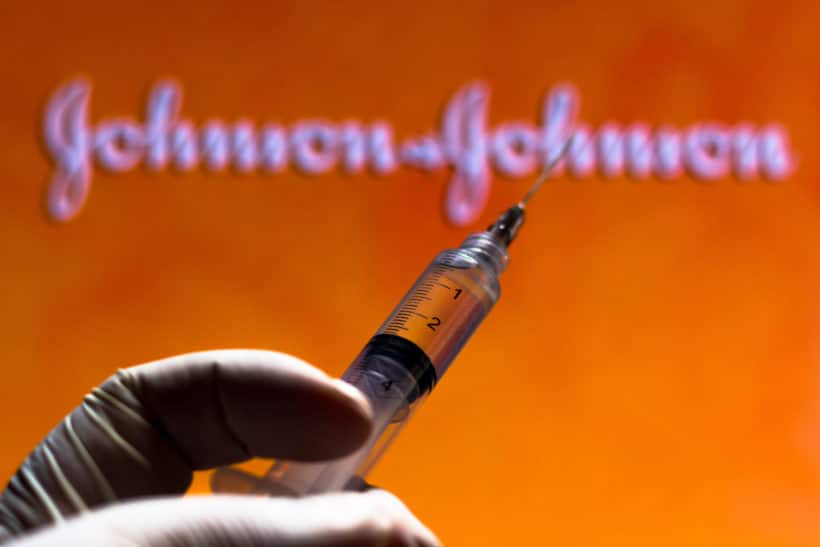
BRUSSELS, Aug 19 (Reuters) – The European Commission said on Thursday it had reached a temporary agreement with South Africa to use a plant there to bottle Johnson & Johnson COVID-19 vaccines that are being imported into the EU.
The deal highlights the complexity of producing vaccines with factories spread across the world and is likely to stir concerns about drugmakers’ power in negotiating supply deals with countries.
On Wednesday the WHO Director-General Tedros Adhanom Ghebreyesus told reporters he was “stunned” by news that J&J vaccines were being exported from South Africa to the EU, because the EU has already very high vaccination rates while in many African countries not even the most vulnerable have been vaccinated.
A spokesperson for the European Commission told reporters on Thursday the agreement with South Africa was reached after J&J faced problems in producing vaccines in the United States at a factory belonging to its partner Emergent Biosolutions.
Under the deal, Aspen Pharmacare bottles the vaccine substance produced elsewhere, and then transfers the finished doses to South Africa and the EU.
Read more: J&J in deal to supply COVID-19 vaccine to African Union member states
A J&J factory in Leiden, in the Netherlands, is a major producer of its vaccine substance for COVID-19 shots worldwide.
From September, J&J will transfer all bottling operations for vaccines directed to the EU to Leiden, the EU spokesperson said.
J&J was not immediately available for a comment.
The news of South Africa’s exports of vaccines to the EU was reported by the New York Times on Monday, confirming earlier public statements from South Africa’s President Cyril Ramaphosa and from the South African drugmaker Aspen Pharmacare, which bottles the J&J vaccines.
The paper cited a confidential contract between J&J and South Africa’s government and said the deal prevented the country, against its will, from imposing restrictions on vaccine exports.
Under its contract with the EU, J&J had also negotiated a complex supply chain that involved U.S.-based firms despite opposition from EU countries, EU internal documents seen by Reuters show.
CLOSING THE CIRCLE?
On Thursday the WHO softened its remarks on EU-South Africa deal. Matshidiso Moeti, WHO Regional Director for Africa, told a news conference the arrangement was “presumably” part of the investment in the development and production of vaccines in Africa.
The EU is leading global investments to create vaccine “hubs” in Africa, including South Africa and Senegal, to increase the continent’s ability to manufacture COVID-19 vaccines.
Read more: South Africa study shows high COVID protection from J&J vaccine
The Aspen plant does not appear among the manufacturing sites approved by the European Medicines Agency (EMA) for J&J vaccines, meaning the shots cannot be used in the EU, although they may be re-exported.
EMA was not immediately available for a comment.
The EU Commission did not respond to questions about what EU countries will do with J&J doses imported from South Africa. EU nations are the owners of vaccines and decide how to use them.
Public EU data show that J&J has delivered as of Thursday 21.5 million doses to the EU. It was supposed to ship 55 million already by the end of June.
Of the delivered doses, only 12.9 millions, or about 60%, have been administered in the EU, public data show, by far the lowest take-up among all EU-approved vaccines, which have a usage rate of at least 75%, and above 90% for the Pfizer/BioNTech shot.
Many EU countries have stopped using J&J over health concerns. The EU has promised to donate at least 200 million doses of COVID-19 vaccines to poorer nations, mostly in Africa, by the end of the year.
(Reporting by Francesco Guarascio @fraguarascio; additional reporting by Promit Mukherjee in Johannesburg, Maggie Fick in Nairobi, Stephanie Nebehay in Geneva and Ludwig Burger in Frankfurt; editing by David Evans)